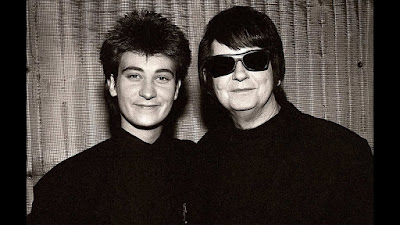Whisky zu warm
Original Facebook post here.
Today's formative-album play-through: Die Dreigroschenoper (Threepenny Opera). It was the Hawaiian guitar that got me. I'd been introduced to Brecht and Weill by Hal Willner's sadly out-of-print collection Lost in the Stars, liked what I heard, and was sampling the uncut homegrown crop. So I kept spinning the two LPs of this 1958 German rendition of Threepenny on a Fisher Price close-and-play at my parents' house, and its charms were stubbornly eluding me. But then I noticed the unmistakeable sound of a slide electric guitar at the end of the Tango Ballad, which led directly into the sparkling "Easy Life" song, which led into the wickedly funny "Jealousy Duet." That Side 3 epiphany opened up all four sides and three acts of this masterpiece to me, and before I knew it I had recordings of everything Weill ever did: the school opera, the string quartets, the Broadway shows, the song cycles, etc. I was hooked, and I credit the seductive sway of that guitar.
Indeed, listening again to this extraordinary recording, which isn't a cast album for any production but which renders the score definitively, it's the sound—not just of that guitar but of the bouncing banjo, the warm accordion, the modest jazz kit, the jeering horns, the burnt-umber bleat of the saxophone, the rough-hewn but spot-on vocals—that transports me. I'm struck again by how classical, if not quite operatic, this score is, and how it derives its own potent brand of Brechtian irony from the sound of a smoky Euro-jazz band playing chorales, fugues, hymns, marches (as well as foxtrots and tangos).
And I begin to realize that I may cherish Weill as much for his arrangements and orchestrations as for the composition of the songs themselves. One reason his "sound" is so hard to imitate, I glean from this listening, is that it's more than just a harmonic or rhythmic signature--it also implies a whole approach to choral and orchestral writing as radical and distinctive as those extended chords and ubiquitous sixths. Sure, Weill was a handy tunesmith, but you can hear from this record what a phenomenal composer he was.
Comments:
Today's formative-album play-through: Die Dreigroschenoper (Threepenny Opera). It was the Hawaiian guitar that got me. I'd been introduced to Brecht and Weill by Hal Willner's sadly out-of-print collection Lost in the Stars, liked what I heard, and was sampling the uncut homegrown crop. So I kept spinning the two LPs of this 1958 German rendition of Threepenny on a Fisher Price close-and-play at my parents' house, and its charms were stubbornly eluding me. But then I noticed the unmistakeable sound of a slide electric guitar at the end of the Tango Ballad, which led directly into the sparkling "Easy Life" song, which led into the wickedly funny "Jealousy Duet." That Side 3 epiphany opened up all four sides and three acts of this masterpiece to me, and before I knew it I had recordings of everything Weill ever did: the school opera, the string quartets, the Broadway shows, the song cycles, etc. I was hooked, and I credit the seductive sway of that guitar.
Indeed, listening again to this extraordinary recording, which isn't a cast album for any production but which renders the score definitively, it's the sound—not just of that guitar but of the bouncing banjo, the warm accordion, the modest jazz kit, the jeering horns, the burnt-umber bleat of the saxophone, the rough-hewn but spot-on vocals—that transports me. I'm struck again by how classical, if not quite operatic, this score is, and how it derives its own potent brand of Brechtian irony from the sound of a smoky Euro-jazz band playing chorales, fugues, hymns, marches (as well as foxtrots and tangos).
And I begin to realize that I may cherish Weill as much for his arrangements and orchestrations as for the composition of the songs themselves. One reason his "sound" is so hard to imitate, I glean from this listening, is that it's more than just a harmonic or rhythmic signature--it also implies a whole approach to choral and orchestral writing as radical and distinctive as those extended chords and ubiquitous sixths. Sure, Weill was a handy tunesmith, but you can hear from this record what a phenomenal composer he was.
Comments:
Carey Fosse Music lesson of the week! Thanks, Rob Weinert-Kendt





Comments
Post a Comment